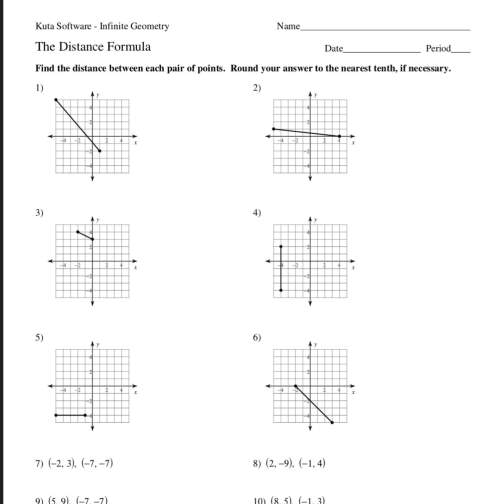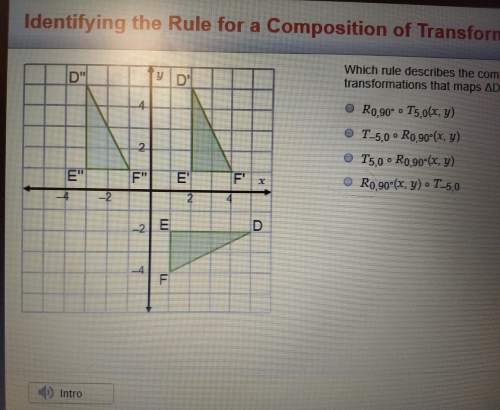
Mathematics, 05.12.2020 08:00 valeriegarcia12
Sn is the sum of the first n terms
To find the sum of the terms of an arithmetic sequence, you can use the
following formulae:
A. If the first and last terms are
given:
Sn=n(A1+An)÷2
where:
Sn is the sum of the first n terms
A1 is the first term
An is the last terma
B. If the last term is not given:
Sn=n[2a+ d(n-1)]÷2
where:
Sn is the sum of the first n terms
A1 is the first term
d is the common difference
Can you prove these formulae?
One way to prove thee formulae is to use mathematica induction.

Answers: 2
Another question on Mathematics

Mathematics, 21.06.2019 15:00
Aregular hexagon rotates counterclockwise about its center. it turns through angles greater than 0° and less than or equal to 360°. at how many different angles will the hexagon map onto itself?
Answers: 2

Mathematics, 21.06.2019 17:30
Choose the number sentence that shows the identity property of addition. a. 122 = 61 + 61 b. 62 = 1 + 61 c. 61 = 0 + 61
Answers: 1

Mathematics, 21.06.2019 20:00
Suppose a store sells an average of 80 cases of soda per day. assume that each case contains 24 cans of soda and that the store is open 10 hours per day. find the average number of soda that the store sells per hour.
Answers: 1

Mathematics, 21.06.2019 22:00
Sara has been reading about different types of financial grants, including federal pell grants, academic competitiveness grants, smart grants, and teach grants. which statement about these grants is true? filling out a fafsa will not her apply for these grants. she will not have to pay back any funds she receives from these grants. these grants only go to students with less than a 3.0 gpa. she will have to pay back all the funds she receives from these grants.
Answers: 2
You know the right answer?
Sn is the sum of the first n terms
To find the sum of the terms of an arithmetic sequence, you can...
Questions


English, 24.07.2019 05:30







Biology, 24.07.2019 05:30





Arts, 24.07.2019 05:30

Biology, 24.07.2019 05:30


Mathematics, 24.07.2019 05:30








